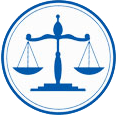Opinions disagree on whether it's ethical to look at hidden electronic information
One of the first things Vincent Polley does after receiving a document from opposing counsel is look for metadata, the hidden information embedded in computer files.
“When I get a document, I take a look for a couple of things, like who it was written by and the number of revisions it went through,” says Polley, who practices information technology law at Dickinson Wright in Bloomfield Hills, Mich., and serves on the council of the ABA Section of Business Law. “You can learn a lot about what someone is sending you that you can’t see by just looking at a document.”
The potential value of metadata is hard to ignore. The Pentagon, the British government and a number of public figures were all embarrassed when metadata revealed that their public statements were at odds with private communications. . . .
[T]o Polley’s thinking, a lawyer is being remiss if he or she doesn’t look at metadata. But is snooping for hidden data in electronic documents from the other side also unethical, or at least a bit unseemly?
Details here from Jason Krause at the ABA Journal.
